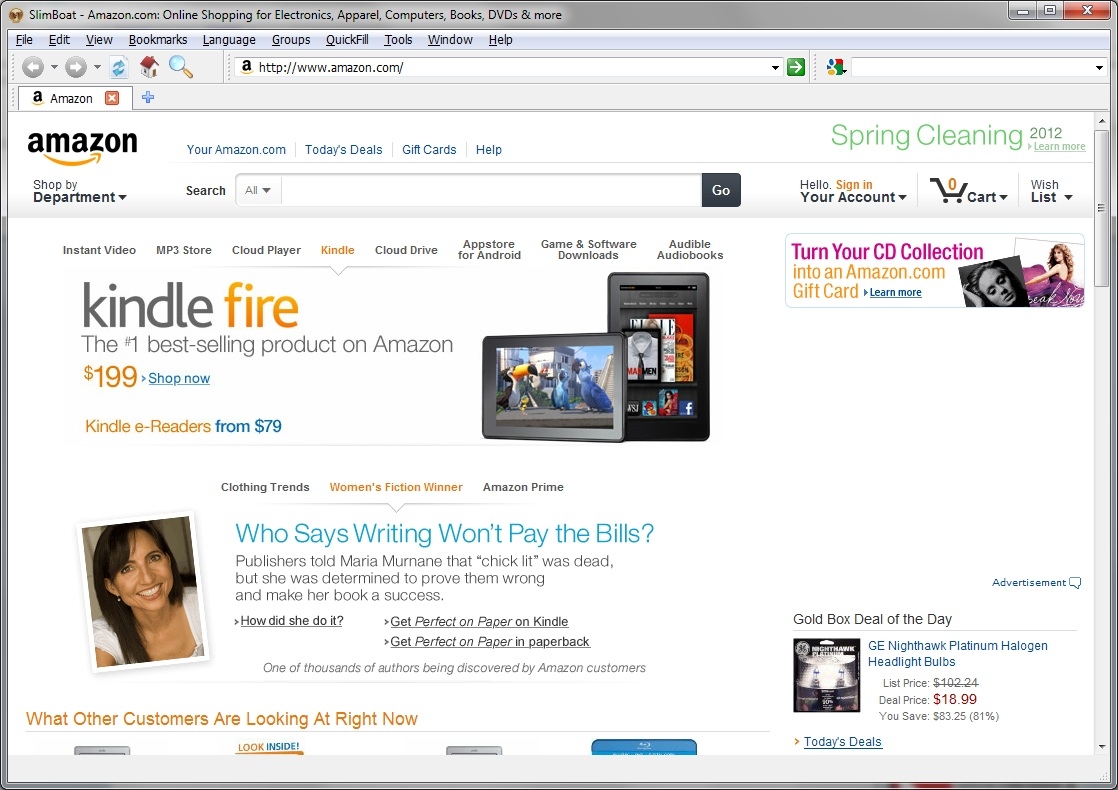
Essentially, you light up the open sign and put out the welcome mat to every slug nutty out there to track you and mine you for data. By default, every browser I know of allows anyone and everyone to set data mines and run scripts etc. I don't know of any browser that comes default with control of scripts or data mines. Browsers (by Pat Menendez on 01:21:34 GMT from Canada).I should perhaps have said its source is viewable, but it's not open source in the proper sense of the term. However, Vivaldi is proprietary software:
#SLIMJET SLIMBOAT CODE#
Technically Vivaldi's source code is available: Vivaldi (by Jesse on 01:18:21 GMT from > "Vivaldi is closed source?".It’s bloated, slow, and a privacy Yes, unlike Brave and Firefox, Vivaldi is partially closed source.
#SLIMJET SLIMBOAT INSTALL#
I’ve come to hate Chrome with a passion and refuse to install it on any system. I also use Firefox occasionally on desktop and often on mobile (Firefox’s dark mode is great for battery life on OLED screens), and sometimes Vivaldi for when I need it’s specialized features. I’ve also found it to be noticeably faster than other browsers, and it works with every Chrome extension I’ve ever tried. The biggest reason is one Jesse mentioned: it’s the only one I’ve tried that passes the Cover Your Tracks test.

#SLIMJET SLIMBOAT DRIVER#
I've used most of them but Firefox is my daily driver for several reasons. Browsers (by Steve K on 00:59:41 GMT from United States).I'd be interested in your thoughts.) While I like LibreWolf, Vivaldi seems to work more to my way of doing things.īy the way, there is also WaterFox which is similar to LibreWolf, just a bit heavier. (Give LibreWolf a try, Jesse, and maybe do a review on it.

Two that stood out - for me - as really good were Vivaldi and, more recently, LibreWolf. I was a Firefox fan for years, even way back into my Windows days, but Firefox started having major issues so I went browser hunting. Vivaldi is closed source? This is the first I've heard of that.


 0 kommentar(er)
0 kommentar(er)
